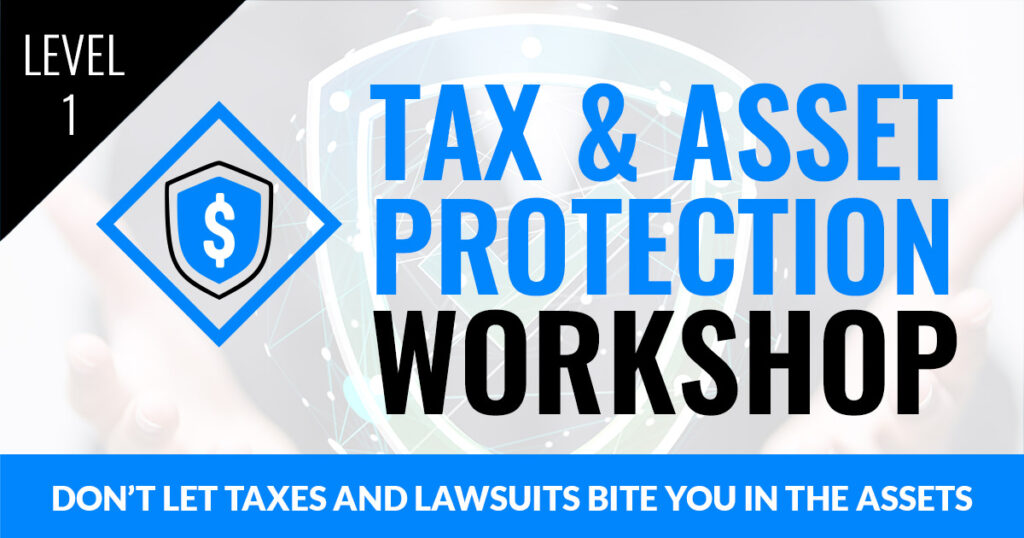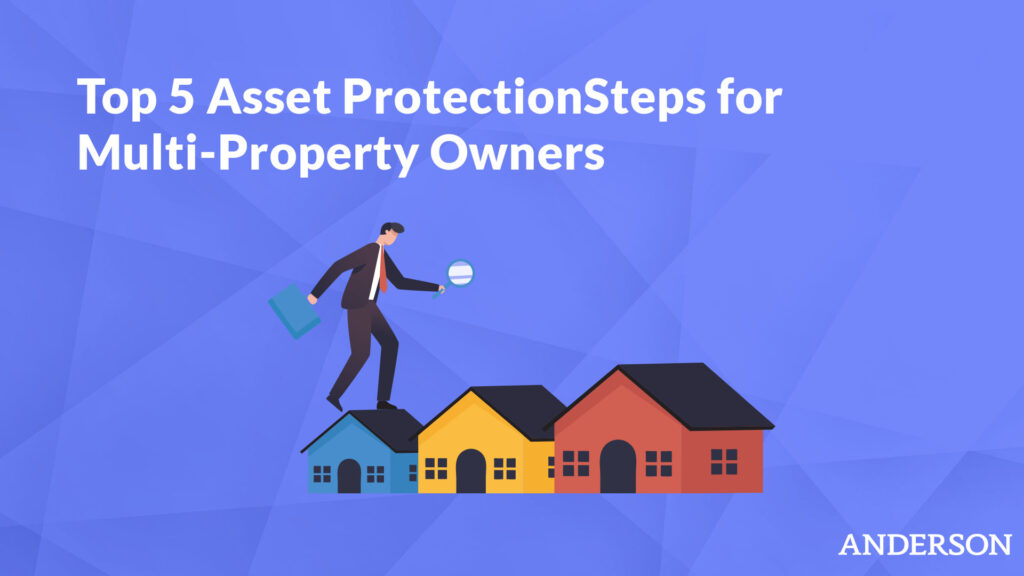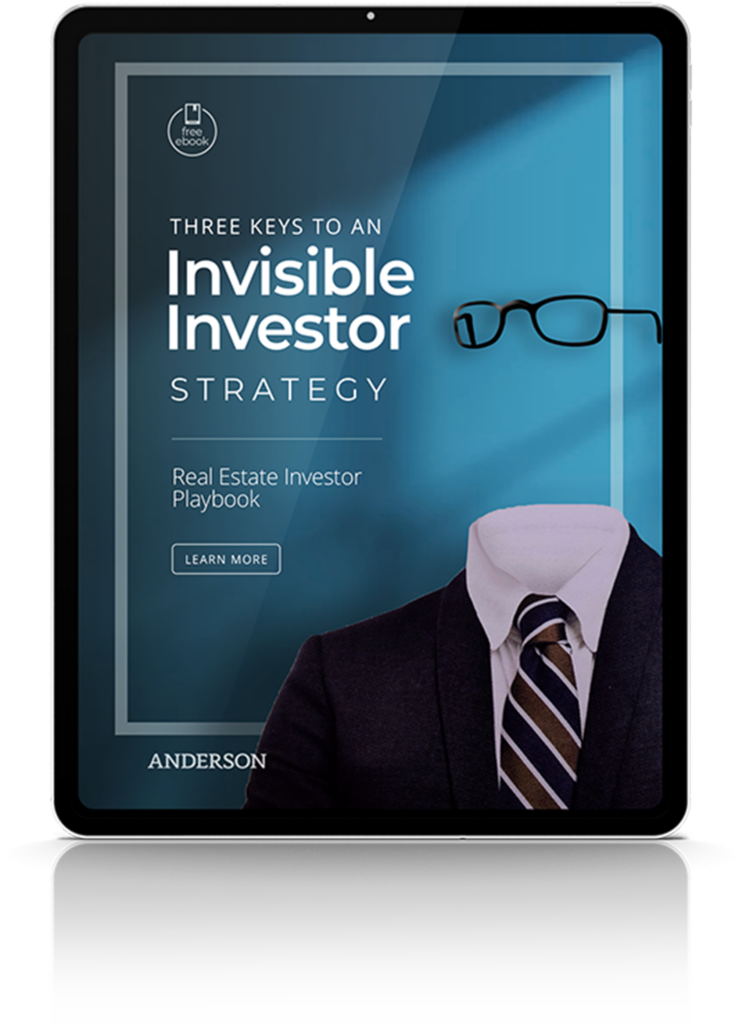
How do you take an existing asset and find alternative ways to profit from it? Or, how do you buy more house than you can afford and live rent-free by building equity and cash flow? House hacking.
Today, Clint Coons of Anderson Business Advisors talks to Captain Kevin Brenner, co-host of the Active Duty Passive Income (ADPI) Podcast and head coach of Operation A.T.O.M. (Action Takers Only Mastermind). Kevin teaches military real estate investors how to build passive income through smart investments.
Kevin started his real estate investing journey in late 2018, after using his Veteran Affairs (VA) Loan Entitlement to house hack a quadplex in Savannah, Georgia. Through careful quality improvements, Kevin renovated each unit and raised the rents $500 per month/per unit. In July 2019, Kevin joined the ranks of the ADPI team and is dedicated to helping other service members and veterans.
Highlights/Topics:
- What is house hacking? Easier way to reduce, eliminate, or cash flow mortgage
- How to take advantage of house hacking? Seek properties where you can rent out bedrooms, separate spaces, and more areas
- What is a carriage house? Separate space or apartment that’s part of a single-family property that you can rent out to pay your mortgage while living in the main house
- What is the ideal property for house hacking? Depends on number of units, not number of bedrooms; look for the right property and strategy
- How can a house hacker level up? Start with roommates, then live a life of luxury in the comfort of your own home paid by others
- Where are the best places to house hack properties? Depends on market and occupancy regulations, but college towns and tourist destinations tend to be popular
- Do you have to house hack with people? No, there are other options to create cash flow, such as renting out your garage for storage space
- What type of insurance coverage is needed? Contact insurance provider about short-term rental and supplemental policies
- When, where, and how to research rental agreements? Ask for advice and reach and to other investors and attorneys to find out their processes and precedence
- What are some differences between conventional residential, VA, FHA, and other loans? Down payment percentage, occupancy regulations, and mortgage insurance
- What are potential house hacking pitfalls to avoid? Work and responsibility are still involved, so consider managing your own property if you’re wise in real estate
Resources:
Active Duty Passive Income (ADPI)
Active Duty Passive Income (ADPI) Podcast
Operation A.T.O.M. (Action Takers Only Mastermind)
Military Real Estate Investing Academy
Federal Housing Administration (FHA)
Anderson Advisors Tax and Asset Protection Event
Full Episode Transcript:
Clint: Welcome to the Anderson Business Advisors Podcast. The nationally recognized preferred provider for asset protection and tax planning in the nation. This show is for real estate investors looking to protect their assets, save on taxes, and build their wealth with Clint Coons. Clint is an attorney, author, avid real estate investor, and featured instructor at Anderson’s Tax and Asset Protection events held throughout the country. Enjoy the show.
Hey everyone, it’s Clint Coons, you’re with Anderson Business Advisors. In this episode, we’re going to be talking about a subject that I think is really intriguing. It actually gives people a way to get involved in real estate where they don’t necessarily know a path because they don’t have the cash available to actually go out and acquire a property. In fact, it’s a strategy that one of my son’s good friends that he went to high school with. He’s now graduated from college, he’s working for Lockheed Martin. He was recently over at my house because what else does he have to do? Everything’s working from home, so come hang out at Clint’s house.
We were talking about his house and how he purchased it. He explained the whole detail behind how he was able to buy this house—more house than he thought he could afford. He’s basically living rent-free building equity and cash flow in this property.
I explained to him the topic, what it was that he was actually doing. He just fell into this, and I started thinking to myself, how many people out there know about this strategy? If you’re not familiar with the strategy, the strategy is referred to as house hacking.
I thought it would be a great opportunity to bring on a good friend of mine, Kevin Brenner. He’s a captain in the Air Force. He’s part of Active Duty Passive Income. This is a group that I work with personally, and we work with active duty investors. Also, people that have—well I guess you never retire from the service, but they’re still involved. It’s really to show them how to move forward.
His program is something that I find extremely unique, and it’s helping veterans, it’s helping active-duty individuals really take the money they’re earning and start creating passive income for themselves. With that, I want to introduce Captain Kevin Brenner. Kevin, how are you doing?
Kevin: Thank you, Clint. Thank you for that kind introduction. You kind of hit on the head when you’re talking about house hacking, and how you can buy a house, you can rent out certain parts of it, and then you can live rent-free. It applies so well with the military. I’m still active duty. I’m up here at the Pentagon in Washington DC.
Unfortunately, I couldn’t house hack here, because I live in a 700 square foot condo, and I think my fiancé would kill me, but other than that, I’m not going to house hack the bathroom. In my last assignment, when I was in Savannah, Georgia, I did just that. I was able to use my VA loan, which for your listeners who aren’t military or have that entitlement, the Veterans Affairs loans. It’s insured by the VA. It allows military members and those eligible to get a loan for zero down. You can walk into a house, no down payment.
There are some closing costs, there are some things involved, but the real kicker is they allow you to buy up to four units. You can buy up to a four-unit property, which is still considered a residential property, in terms of real estate—as I’m sure many of your listeners know. You can get up to a four-unit property paid for zero down, and that’s exactly what I did. I bought a quadplex in Savannah, Georgia. I think I bought the entire thing. I had to come out-of-pocket like $3000, and this thing was cash flowing from day one.
I would’ve had to move into one of the units, however consequently, about a week after I bought it, I got orders to come to DC, so obviously, I couldn’t live there. Which is great because I was able to leave the tenant—who I actually bought it from—was as sweet a lady. She had owned it for 30 years, and I bought it from her. She lived in one of the units. She got to stay in her unit because listen, I’m sorry, I got orders to go to Washington DC. We renovated all the apartments, and it’s just really great.
Clint: All right. You got a little bit ahead of everybody here because there are a lot of people probably listening to this right now, and they don’t even know what house hacking is. Let’s go back and explain to them, what is house hacking? How did you get involved in it? We’ll cover that but explain it in detail.
Kevin: Essentially, when we talk about house hacking, it’s one of those, if you’ve heard of the term life hack or something like that, it’s an easier way to do something. When we talk about house hacking, we’re talking about, okay, you have a property and your mortgage payment is $2000 a month. That’s your mortgage payment. You got $2000, you got to pay that every month. You owe that money.
How can you reduce that mortgage payment? How can you hack it to lower that, potentially even eliminate it—or if you’re really good—cash flow from it? It all depends on the property that you’re looking into. There’s a lot of things. There are so many ways that you can do this. From the traditional rent out some bedrooms in your house. A lot of this, by the way, for your audience, they might be married, they might have families, and totally not kosher, not cool. Hey, let’s bring in some strangers into your house. I don’t recommend that.
There are other strategies that you can take advantage of if you have a family living in your house. But if you’re single and you’re willing to do something like this, you can, one, look for the properties that fit the model that you want to do. If you tell your realtors, say, hey, I’m looking to house hack. Most realtors understand that real estate term. You’ll be able to find properties and make it work.
Again, if your mortgage payment is $2000 a month, you get a four-bedroom house, rent out three of those bedrooms, and stay in one. You might rent out a bedroom for $500 a month to someone, and boom, there you go. You just covered $1500 of your mortgage payment, you’re house hacking. Those tenants are paying down the equity, and they’re giving you equity in your home. In that example, you’re paying $500 a month to live in what would be a beautiful home. That in itself is house hacking.
Clint: Yeah. So you’re renting rooms out, in this example, if you’re single, or maybe you’ve got…
Kevin: Might be a young married couple. But it depends on how hard you want to go. There are stories out there where people are moving their families around and all kinds of things. A lot of the time with the families—so get this, this is a whole another spin on it. In the south where a lot of my properties are, there’s a thing called carriage houses.
You’ll have a single-family home, and then behind it, you’ll have a carriage house. It’s like a pool house but sometimes there are little garages, sometimes people renovate them into little apartments. But if you can get a house like that, that has a carriage house in the back, you can live in the main house and then you could rent out the carriage house, which is completely separate. It’s got its own kitchen, bathroom, the whole thing.
You got a little backyard apartment back there, that’s paying your mortgage every month. It could work out really well. The traditional house hacking model of like, well I have a family. I can’t do this. It’s not necessarily true, you just have to look for the right property, right strategy.
Clint: Okay, so that’s it right there, right property. Let’s assume that I want to get involved, I’m not married, what is that the ideal property? Is it three bedrooms, four bedrooms, five bedrooms, certain square feet? Do you find a certain number of bathrooms? That’s got to be something that’s going to attract people to want to live in that type of communal environment.
Kevin: That’s a great question, Clint. Like all savvy real estate investors, my answer’s going to be, well it depends. That’s a lawyer answer right there, isn’t it?
Clint: Yeah. I love it.
Kevin: Honestly, it depends. I would say for me—and this is how I think about it—it’s not the number of bedrooms, it’s the number of units. If you can go and get a duplex, you live in one-half, and you have another tenant living in another half, that’s still house hacking. It’s your house, you’re hacking it.
Think about it like this, you have a duplex, you live in one-half, and you Airbnb the other side. That’s house hacking, and it’s a lot more profitable, if you do it right, if your market supports it. If you live in the middle of New Mexico, it might not work. But if you live somewhere where there’s a lot of people or a tourism-reliant community, you can do really, really well. They don’t even have to be at your house because you have one side, they got the other side.
I would encourage your listeners to really look into duplexes, triplexes, or even quadplexes if they’re really interested in getting into house hacking, because that’s how you level up. A lot of beginners will start with the concept that you said, I got a three-bedroom home. And then they’re renting out two of the bedrooms, but their kitchen sink is full of dishes all the time. They got roommates.
Then they’re thinking about, okay, how can I level up and still live comfortably, have my bubble. I’m living proof that if you get a quadplex, you can cash flow. Not only does it cover my mortgage, but it’s also putting money in my wallet every single month.
Clint: We pretty much defined it. You’re single, maybe you’ve got a girlfriend or a spouse, then renting out the bedrooms is possibly a way to go, but the drawback is you’re going to be living with other people. I would assume then you have to do the numbers. If you’re looking at a three-bedroom house versus a five-bedroom house, if it’s only going to increase your mortgage $500 a month, go for the five-bedroom house if you can rent those rooms out for $500 apiece. You can have even more cash flow.
Kevin: Yeah, and it all depends on your market. You have to figure out, okay, what’s in my market? Typically, a lot of people are house hacking places where there are universities, and again, there’s obviously regulations based on the city and all of that stuff. Maybe you can’t have this many occupants in a house.
Again, I have to tell that disclaimer around here. This is from my experience. I’m not a lawyer, you are and all this stuff. But usually, the occupancy regulation is one sometimes two people per bedroom is what they’ll allow. But usually, it’s one couple sometimes, not family, but one tenant per se per bedroom that you can let go. You can’t go and put 25 people in a five-bedroom house. That isn’t going to work.
There’s a lot of other options, and one thing that I did forget to touch on, you don’t necessarily have to house hack with people. This blows a lot of people’s minds. There are some sites out there. One that comes to mind is neighbor.com. On my podcasts, the Active Duty Passive Income Podcast, we interview their CEO, and what they do is they allow you to store people’s stuff.
Say you got a house, you got a big garage, and you don’t have any cars, or you’re parking outside (who the heck knows). You got a big empty garage. You can go on that website, take pictures of it, and do whatever they ask you to do. You rent out space in your garage for someone who might be in the military who’s moving, they’re going overseas, or whatever. They don’t have to be military. It could be anyone who needs storage, and it might be a couple of $100 a month.
I’ve heard stories of people going out and actually putting fences—this is wild. They put fences on their yard, and they’ll make boat storage or RV storage, and they’re killing it. They’re making thousands of dollars a month. Because they live in a big open area, they don’t use the land, and how much is it to put a fence up? Who knows? I don’t know. Fence and a couple of security cameras, not that bad.
I don’t have a boat, I don’t have an RV, but I am aware that storing them is expensive. If you can undercut someone else by putting it on your property and get a house hack out of it, all the power to you, that’s what I say.
Clint: Yeah, the term really means about how do you take an existing asset and find alternative ways to profit from it. I hear what you’re saying is that so many people look at house hacking as putting people in the house, but you’re saying store goods, store vehicles. You just have to make sure your insurance will cover it, in case something happens, I imagine.
Kevin: Yeah, exactly. For example, if you’re doing Airbnb, I highly recommend approaching your insurance agent about a short term rental insurance policy because Airbnb has their whatever million-dollar policy. But when it comes down to brass tax, they don’t like paying out that much. If you get a supplemental policy, you can cover yourself. They’re not hard to find. Obviously, cover your bases, do what you need to do. The only thing that’s limiting you in house hacking is your imagination.
There are services out there where you can put ads out there for whatever. Like you said, Clint, you have your asset. How can I add value to this asset to help alleviate me paying more of the mortgage or get the equity covered?
Clint: Let’s say I was renting rooms out. I guess that’s going to be a special rental agreement for someone. It’s not just the standard where you’re renting the entire house because now the common area, it’s shared. There are certain attorneys that draft those. What would you recommend there?
Kevin: What I would do is—depending on the market, obviously—I would go and look for other investors who are doing the same thing as you. Typically, by room rentals are not considered short term rentals. Because a short term rental in most—and this is regulated by the city that you’re operating in most times—is usually defined as less than 30 days. Anything longer than 30 days could be considered something like an executive apartment or whatever.
Anyway, you can apply that same policy to a room. Obviously, you have to furnish the room—at least in most cases you do. As far as the paperwork goes, I would reach out to other investors and say what are you using? Reach out to some attorneys and say, this is what I want to do.
The fact of the matter is, in real estate, 99% of the time someone else has done it. Whether it’s now or 50 years ago, someone else has done it. There is precedence there. It’s a good thing because you’re able to find the paperwork that you need by just reaching out and networking.
Clint: You figured it out because I imagine you want clauses in there that people can’t walk around naked.
Kevin: The walk around naked clause would be important. Maybe a deal-breaker for some though, I don’t know.
Clint: I can imagine. The house hacking, if you’re renting out the rooms, I see that as a great strategy, especially if you live in a larger city where they’re very expensive apartments. This gives other individuals—say millennials—an opportunity to get some space, not in an apartment, but in a house could be beneficial for you.
You were talking about the duplex, the triplex, and the quads, and renting those out. To me, they call it a house hack, but it all sounds just like a straight-up rental situation, isn’t it? In the sense that you’re just renting out that one unit?
Kevin: Yeah, it is. In the house hacking portion of it—at the beginning of the interview, in the intro, I kind of mentioned how I did it. I used a conventional residential loan, the VA (in my case), but someone who’s not military can use an FHA, pay 3.5% down. You still have to move into one of the units. Say you’re using an FHA, when you’re filling out your loan paperwork, you got to come to the table with 3.5%, which is pretty awesome.
As opposed to if you want to do an investment loan, and you didn’t want to live there, it’s probably 25%, maybe even 30% now, given the economic climate, depending on what bank you’re going with. But you come to the table 3.5% now, two things—one, you got to live there, and two, you got to pay mortgage insurance.
If you run those numbers and your tenants are still paying all of that and more, you move in and your house hacking. For me, I was about to move in, but then the military, had other plans for me, which is great because I didn’t have to displace the prior seller, who is an 84-year-old woman. I didn’t want to do that. She gets to still stay in her home, and just the timing worked out on that for me.
Now, I have, essentially, an investment property even though I was able to use the VA to purchase it. It was awesome. For someone just getting into real estate at the time, I was over the moon because I didn’t think I could even do that. I was looking at condos and all these other things that I was going to buy, single units, not thinking like an investor, thinking like a consumer. I’m glad I got the advice I did when I did because it really changed my life.
Clint: For those types of investments, near bases, is that probably a good place for that?
Kevin: As far as the quadplex, duplex, and triplex, it depends. It’s market dependent. I’ll tell you what. In the south—my assets are in Savannah, Georgia—they’re everywhere. Sometimes, they’re around bases, sometimes they’re not. A lot of the time, the quadplexes will be built up in neighborhoods. Usually, they’re affordable housing projects that were from the ‘50s or ‘60s, have since gentrified, and people just living there.
The buildings are built really, really well, and that’s the case in the neighborhood that I buy in. I have two of them there two blocks apart from each other, and they do really well. We’ve rehabbed them all, we make them nicer, we upped the rent, and we cash flow pretty well.
It really depends on your market. You could look in some markets, and they might not have one duplex just based on what they were building, what the housing requirements were at the time. But any market that has gone through a boom with a lot of people moving, it might be constrained geographically, you’re going to start seeing more and more multi-units. Because people are still coming in, but if there’s no more space to build, they’re not going to build out, they’re going to build up.
That would be something that you could start looking in. If you look hard enough every market I’ve looked at in real estate, they’ve had them there. It’s just you got to look, and you got to ask the experts on the ground.
Clint: Is there any got yous that people should be aware of if they’re going to use this strategy that can come back and hurt them?
Kevin: If you’re traditionally house hacking and you are living there, and let’s assume that you’re doing the house hack that we’re talking about where you have a quadplex. You live in one unit, you got three other tenants living there. You can pay a property manager, you certainly can, but if you’re living there, you probably would want to save the money and do the property management yourself. There is some work involved. You’re still responsible for the lives of three other tenants, as far as their housing is concerned.
You might have some weird calls, you might have to manage some rehabs or do some things, but if you already are wise in real estate, or if you want to crash course, if you’re new to real estate and you want to crash course, go and house hack something and take care of another tenant and you’ll understand. Because most people have been tenants before, but you’ll understand—from when you first take care of another tenant—the other side of the coin.
You’ll start weighing different costs, different finishes, and upgrades that you want to make, versus okay, will this generate more rent, will it not? You’ll start thinking about it like a business, and that’s some of the best advice that I give all of our students is you got to treat real estate like the business that it is.
Even if your house hacking, separate bank accounts. Talk to your tax adviser. You got depreciation at play, you got a lot of things at play that you need to set up ahead of time or at a minimum at the beginning of this, to make sure that come tax time, you’re good to go.
Clint: Why Savannah? Other than the fact that you bought your first one down there, you’re going to be stationed, it sounds like.
Kevin: I lived down there. I was stationed down there for 3 ½ years, Hunter Army Airfield, Fort Stewart, Georgia. That area, that neck of the woods—I really loved it. Savannah’s great. Great town, great foodie town. I really fell in love. That was the first place. I’ve been in the military for a while now. You hop around from station to station, you don’t really build roots, and it’s hard to make friends because you’re the new guy or girl in town, but I really built roots in Savannah.
In DC now, but who knows, we might end up back down there. If we do, I got some places to live, or I’ll just buy more real estate down there because just keep building on that portfolio.
Clint: What do you got planned for the future?
Kevin: Lots of things. Active Duty Passive Income, we are growing so fast. If any of your listeners can relate, if they know folks in the military or they’re veterans themselves, I highly encourage them to check us out. We have a Facebook community of over 12,000 members now, and tons and tons and tons of free resources.
The podcast, you could hear me blabber on about real estate on the podcast, but more importantly than that, we have an Amazon number one bestselling book that literally goes through military house hacking. My bookshelf is behind me. I had it here on the desk earlier, but totally free on our website. Go and get that activedutypassiveincome.com.
For me personally, apart from my active duty military career and then Active Duty Passive Income, I’m also establishing a private equity firm. That’s a Nimbus Capital Investment Company. I’m a meteorologist in the Air Force. I had to throw it back by calling my new venture, Nimbus, which is Latin for cloud.
My partners and I are doing something a little bit unique, and we are raising capital from accredited millennials. I’m not sure if your audience is familiar with accredited, but high net worth millennials. We’re going to use that money, put it into a fund of funds, and then that capital, we’re going to use to fund other millennial multifamily syndicators, developers, and asset managers. We’re going to fund their deals and take an equity position. We’re hoping to raise $1 million in our first raise. That starts in October of this year, and then we’re going to ramp it up from there—$5 million, $10 million.
Hopefully, by the end of 2021, my goal is to raise $20 million. We’ll see where we are. I think there’s just a great opportunity because no one really thinks of millennials as people who have a lot of capital, but the truth is they do. Our generation now has eclipsed your generation, Clint, in the working class. But that’s good because that means you get to retire and lay on the beach, and then we got to do all the work now, right?
Clint: Yeah, that’s right, and pay off all these debts our company keeps incurring. Why don’t you do that?
Kevin: Yeah, that sounds fun. I’m looking forward to that.
Clint: All right. If somebody that’s listening, we have a lot of military members and veterans that listen to our podcast. They see me on YouTube. If they want to get involved with Active Duty Passive Income, how would they do that?
Kevin: Yeah, it’s really simple. Just go to www.activedutypassiveincome.com and you’ll get hooked up. There are 16 individual free resources. Actually, we just posted another one, I think it’s 17 now. Just from the podcast alone, but we have a free VA loan mastery guide. There’s a statistic out there, it’s like less than 13% of people in the military who are eligible for the VA actually use that product, which is staggering because zero down.
Only 13%, and a lot of the time, it’s because people are confused. But there’s a free VA loan mastery guide, where we go over. It’s a free course. We go over the entire thing, and then we have a bunch of free ebooks, the podcast, go on and on. But if you’re looking to get into real estate investing and you say, hey this is what I want to do, I highly, highly encourage you to look into our Military Real Estate Investing Academy, which is a fabulous course.
It is a full online course, and then you can join me in Operation A.T.O.M, and that’s the single-family mastermind. We call it Operation A.T.O.M, and that’s the Action Takers Only Mastermind. We have a group of action takers, that’s what I call them, and they’re crushing it, from flipping houses, to wholesaling, to whatever. A lot of them are still active duty. A lot of them are veterans, but they can definitely get involved. I’d love to see your folks cross over and just get more resources on investing and building wealth because there’s so much information out there.
Clint: One of our senior strategists here at Anderson, a good friend of mine, Michael Hackler, he’s on his third property now. He just closed on one. He did a house hack in Salt Lake City—VA loan, zero down. If you’re a veteran or your active duty, the programs out there are phenomenal, and it really can help you build wealth quickly through real estate. They should go check out that channel for sure.
Kevin: Yeah, absolutely. Honestly, it’s like a springboard. Like Clint just said, if you’re eligible for the VA loan, you have such a leg up on everyone else out there who has to wait to build up. Whether it’s 3.5% for an FHA, 20%, 25%, or 30% for an investment loan, you have a tremendous leg up, and you can really springboard that into an entire portfolio that you can retire from quite easily, in fact.
Clint: Kevin, thanks. Anything else you want to leave in passing?
Kevin: No. If anyone wants to get in touch with me directly, feel free to shoot me an email at kevin@activedutypassiveincome.com. I’d be happy to point in the right direction.
Clint: All right. Thanks for coming on, bud.
Kevin: All right. Thank you, Clint. Bye. See you.
Clint: Thank you for listening to today’s podcast. Show notes for links to everything mentioned in this episode can be found on our website at andersonadvisors.com/podcast. Be sure you subscribe to our podcast, and if you are already a subscriber, please provide us a review of what you thought of this episode.












